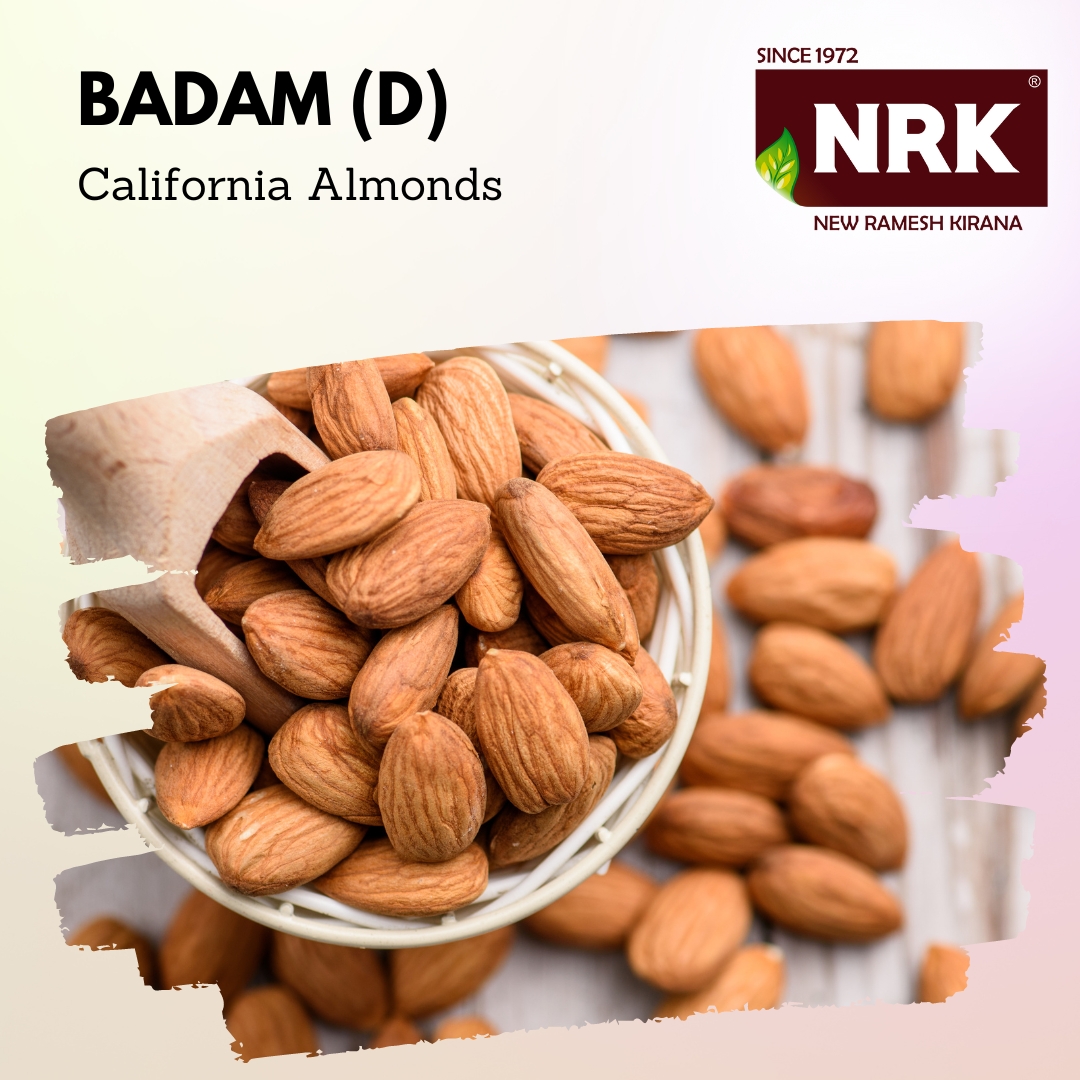Description
Why Almonds, are So Special?
Almonds are considered special for a number of reasons:
Nutritional value: Almonds are a good source of nutrients, including healthy fats, protein, fiber, and a variety of vitamins and minerals.
Health benefits: Research has shown that almonds may have a number of health benefits, including improving heart health, helping with weight management, lowering blood sugar levels, improving brain function, aiding in digestion, improving skin health, reducing the risk of certain cancers, reducing the risk of type 2 diabetes, and having anti-inflammatory effects.
Versatility: Almonds can be eaten raw, soaked, roasted, sliced or chopped, ground into flour, used to make almond butter or almond milk, and incorporated into a variety of dishes and recipes.
Flavor and texture: Almonds have a distinct, nutty flavor and a crunchy texture that make them a popular choice for snacking and adding to dishes.
Cultural significance: Almonds have a long history of use in cooking and as a medicinal food, and they have played a significant role in the culture and cuisine of many countries around the world.
How to consume Almonds?
There are many ways to incorporate almonds into your diet:
Eat them raw: Almonds can be eaten raw as a snack or added to salads or other dishes.
Soak them: Soaking almonds overnight can make them easier to digest and may enhance their nutritional value.
Roast them: Roasting almonds can add flavor and crunch to the nuts.
Slice or chop them: Almonds can be sliced or chopped and added to oatmeal, yogurt, or baked goods.
Grind them: Almonds can be ground into a flour and used as a substitute for regular flour in recipes.
Use almond butter: Almond butter is a spread made from ground almonds and can be used as a spread on toast or added to smoothies or other recipes.
Use almond milk: Almond milk is a plant-based milk made from ground almonds and water. It can be used as a substitute for cow’s milk in recipes or as a standalone drink.
Remember to pay attention to portion sizes when consuming almonds, as they are high in calories and should be consumed in moderation as part of a balanced diet.
10 Benefits of eating Almonds?
1): Almonds are a good source of nutrients: Almonds are a good source of healthy fats, protein, fiber, and a variety of vitamins and minerals, including vitamin E, magnesium, and potassium.
2): Almonds may help with weight management: Almonds are relatively low in calories and high in fiber, which can help keep you feeling full and satisfied, potentially aiding in weight management.
3): Almonds may improve heart health: Almonds are a good source of monounsaturated fats, which have been shown to help lower LDL (bad) cholesterol and improve heart health.
4): Almonds may help lower blood sugar levels: Almonds have a low glycemic index, which means they don’t cause a rapid increase in blood sugar levels. This can be beneficial for people with diabetes or those trying to manage their blood sugar levels.
5): Almonds may improve brain function: Almonds are a good source of antioxidants, including vitamin E, which may help improve brain function and protect against age-related cognitive decline.
6): Almonds may help with digestion: The fiber in almonds can help improve digestion and prevent constipation.
7): Almonds may improve skin health: The vitamin E in almonds is an antioxidant that can help protect the skin from damage caused by free radicals.
8): Almonds may help reduce the risk of certain cancers: Some studies have suggested that almonds may help reduce the risk of certain types of cancer, such as breast and colon cancer.
9): Almonds may help reduce the risk of diabetes: Some research has suggested that almonds may help reduce the risk of type 2 diabetes.
10): Almonds may have anti-inflammatory effects: Almonds contain antioxidants and other compounds that may have anti-inflammatory effects, which may be beneficial for reducing inflammation in the body.




